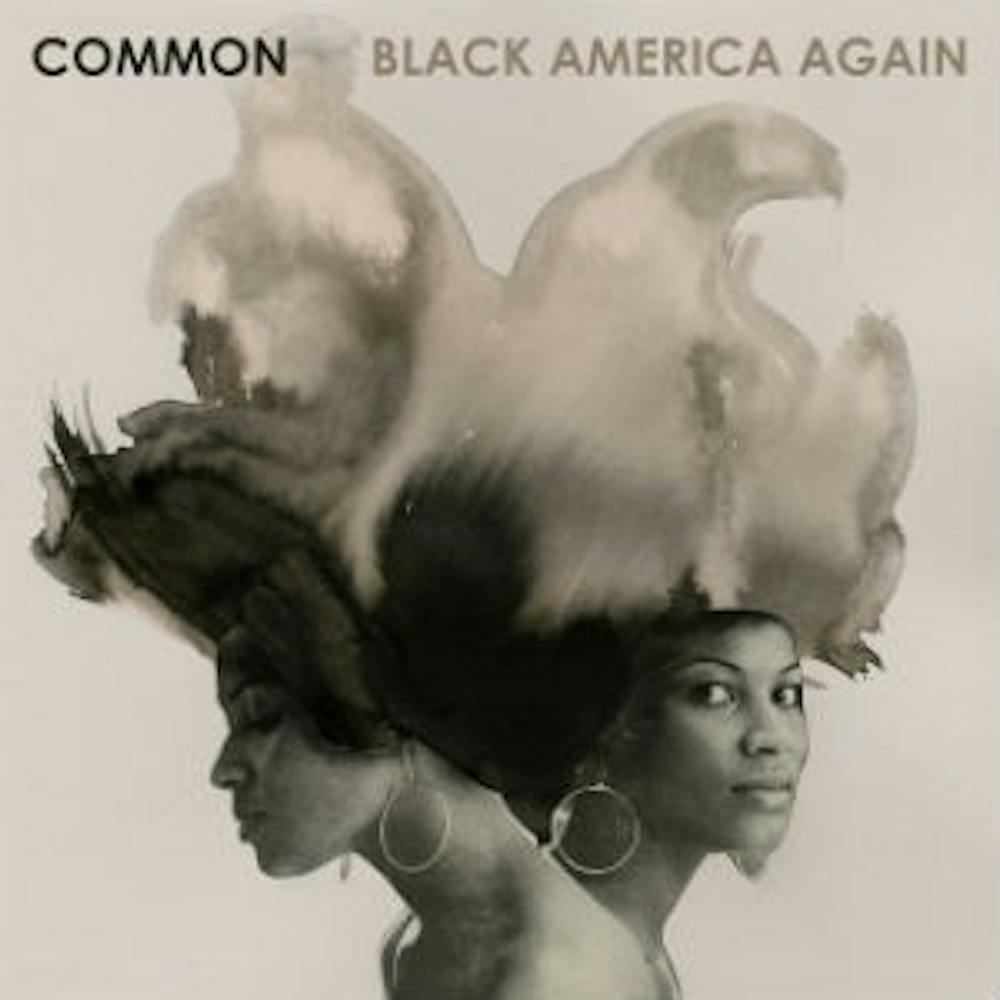“A man can't get himself together until he knows who he is, and be proud of what and who he is and where he come from.” These moving words from soul music legend James Brown are heavily sampled on the title track of Chicago rapper Common’s latest album, “Black America Again.” In many ways, the lyrics perfectly represent what Common accomplishes with the release of his latest album.
“Black America Again” builds up the proud accomplishments of African American figures, while simultaneously breaking down the injustices African-Americans have faced in the past and still face today. Common uses this exploration of past and present to define the roots of Black America and to show what will bring it together.
This theme can be heard most obviously on the album’s title track, where Common runs through a laundry list of racial injustices. With a flow full of anger and vitriol, Common makes his way from exploring 19th century oppression in lines like, “Made the whip crackle on our back slow / … and raffle black bodies on the slave blocks,” to targeting more recent issues of unjust violence with verses like, “Here we go, here, here we go again / Trayvon'll never get to be an older man.” The track features a booming piano sample and tense dark string sections which further amplify the intensity of Common’s flow and the impact of his words.
“Black America Again,” along with similar tracks like “Pyramids” and “Letter to the Free,” are written with a sober poeticism, effectively allowing the meaning behind their verses to take hold of the listener. The album’s most powerful moments undoubtedly come from these tracks, which tackle the difficult subject matter of racial injustice head on.
Though much of the album deals with past oppression and difficulty, a larger portion of the album is reserved for a celebration of the accomplishments of Black America. This is made clear most prominently through Common’s repeated references to successful black celebrities and historical figures over the course of the album. The sheer number of names Common drops into his songs is enormous, spanning artists, athletes, politicians and activists.
On a track full of female empowerment, “The Day Women Took Over,” Common imagines a world created by women which serves as a metaphor for the accomplishments of black American women. With lyrics like “Beyonce made the music of the revolution,” and “On dollars, it's Michelle Obama, Oprah and Rosa,” these verses and the song’s concept recognize black women as not only important in their accomplishments as black Americans, but as an essential part of America as a whole. This is still only a small chunk of the people Common recognizes on “Black America Again,” speaking to the diverse range of people he believes make up Black America.
“Black America Again” is titled as such because, in many ways, Common sees the Black America of today as forging a new identity. He breaks down the concept of the black experience in America with both pride and anger, paying respect to the successes and struggles of the old Black America, acknowledging that many of the issues which opposed them live on today. At the same time, however, he sees a new generation of black leaders and icons, whether they be first ladies, pop icons, celebrated athletes or social activists. The ideas Common speaks about can be realized within these people, and a new path can be made for Black America, again.





